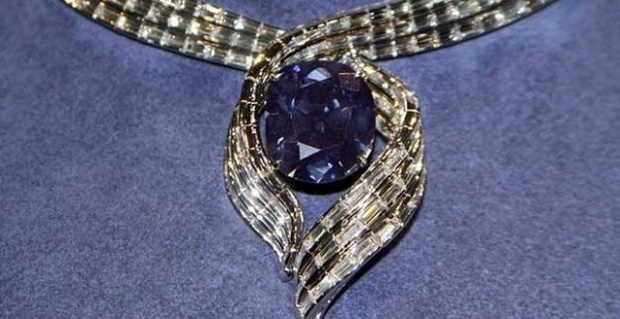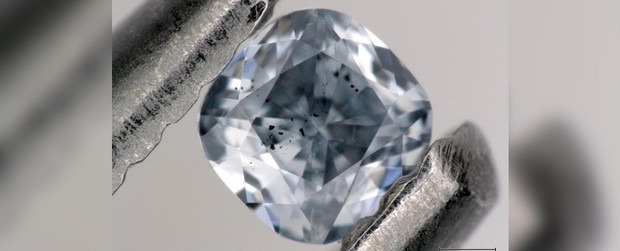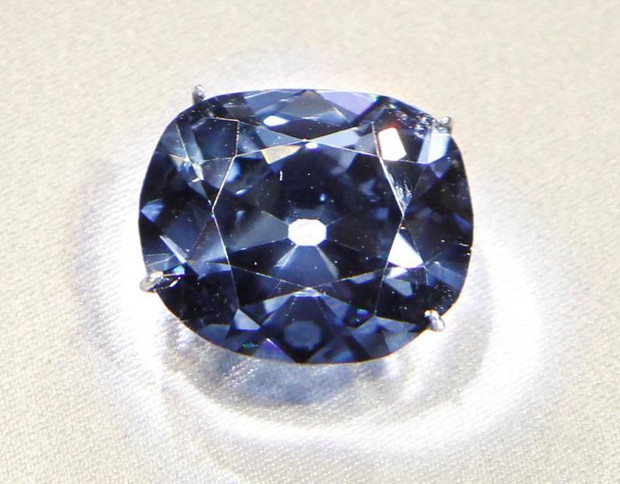They form at depths that no one can imagine.
Diamonds of course everyone knows. As one of the strongest, longest lasting and most perfect stones, diamond has too many practical applications, but mainly for jewelry. And because of this, this jewelry is still considered a luxury item, only for those who have money.
But not all diamonds are the same. Depending on the color, purity and origin (natural or artificial), the price of diamonds will be different. Among them, the most precious and rare on Earth are blue diamonds.
According to statistics of more than 13.8 million diamonds mined on Earth, only 0.02% are blue. And oddly enough, no one knew why they were blue, until a recent study published in the journal Nature answered.
Specifically, according to experts at the American Gem Institute, deep-born blue diamonds deserve to be considered “hell”. This depth is at least 640 km, which is four times that of ordinary diamonds and twice the distance between the ground and the international space station ISS.
In fact, the origin of blue diamonds has always been a huge question mark. “We always know there must be something special about this type of diamond,” said Jeffrey E. Post, curator of the Smithsonia Museum of Natural History. But precisely, no one knows it yet.
“We really don’t know anything about where this diamond was formed” – Evan M. Smith – geologist, said the author of the study.
Questions about blue diamonds are hard to answer
Experts have tried to track impurities in carbon atoms – particularly boron, which makes diamonds blue. For those who have forgotten, diamond is a form of carbon (the most common form is coal).
Boron atoms can replace carbon when forming a crystal structure. Although it cannot be completely replaced, the lost electron in boron absorbs red light, making the diamond blue.
However, it was this discovery that made the experts more headache. Boron is actually a very common atom in the field. The more it sinks, the rarer it is. The presence of boron is therefore quite absurd, because the diamonds themselves, whether blue or transparent, form very deep underground.
To answer this question, Smith tested 46 blue diamonds – including those worth tens of millions of dollars. According to Post, the number of diamonds this team has been exposed to is likely higher than anyone in the world.
Diamonds form like trees growing out of the ground, Smith said. They absorb the surrounding matter, come together to grow.
“I want to create an image of the birthplace of blue diamonds” – said Smith.
This absorption process will generate impurities. With the jeweler, impurities must be removed. But to geologists, they say a lot about where the diamond was made.
Through testing, Smith confirmed that certain amounts of calcium silicate and other minerals were only formed at extremely high pressures. Then somehow they slowly emerged to the ground. The reduced pressure causes these minerals to become unstable and shatter, leaving fragments of crystals inside the diamond.
Other test results also confirm their place of birth. There must be two types of rocks: the crust at the bottom of the ocean and the mantle below. From this data, we have the answer: blue diamonds originated where tectonic plates hit the earth’s crust very deep below the ocean floor.
This is also the answer to the “ridiculous” boron molecule. According to Smith, boron exists in seawater. He speculated that the collision pushed the boron deep, even reaching the mantle, and from there formed extremely rare diamonds.
However, Smith pointed out that, plausible as it is, this remains a guess. We need more research, even … sacrifice, to dissect some of these rare and expensive diamonds. But maybe no one dares to do it, at least for now.




